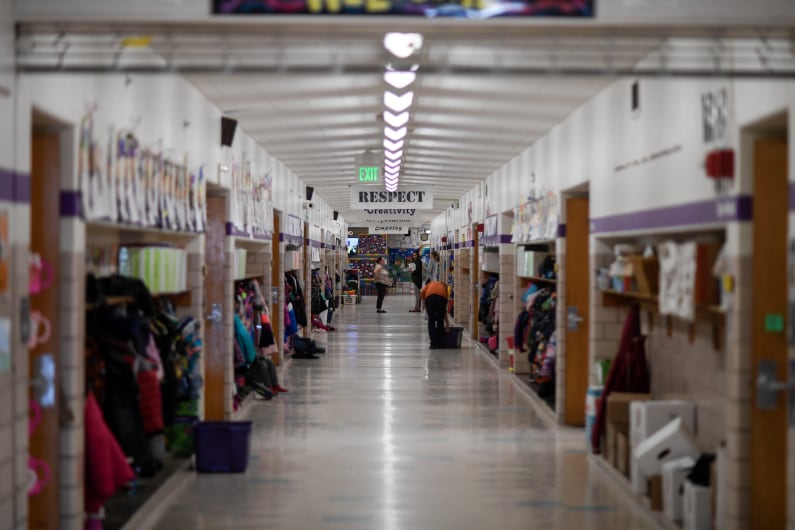Colorado will be exempt this year from federal requirements that the state identify and intervene in schools where students aren’t meeting certain academic expectations.
This week the U.S. Department of Education approved a request from the state to pause certain requirements of the Every Student Succeeds Act, including aspects of the federal accountability system.
The federal system focuses on how well traditionally underserved students are doing, while a separate state accountability system gives more weight to overall academic performance. Some schools that have good ratings under the state system are identified for intervention under the federal system because students with disabilities or students who are learning English, for example, are far behind their peers.
The waiver comes amid a school year filled with pandemic disruptions. Students didn’t take standardized tests in 2020, and many education officials expect participation in standardized testing to be low this year.
Colorado has significantly scaled back testing with the blessing of federal officials. Instead of taking a full suite of tests, students will take either a literacy or math test, depending on their grade level, and eighth graders will take a science test. High school students are still taking the PSAT or the SAT.
State and federal officials hope this reduced testing plan will provide enough information to assess how the pandemic affected learning, but it won’t give the fuller picture on which both the state and federal accountability systems depend.
The state accountability system is also on pause under legislation signed into law this spring.
Under the waiver, the Colorado Department of Education does not have to measure progress toward long-term goals by schools already on the federal watch list nor does it have to identify new schools for either comprehensive or targeted support.
Colorado will also be exempt from requirements that at least 95% of students take standardized tests.
The state education department, however, will have to keep working with schools that have already been identified, as well as make publicly available information on chronic absenteeism and student access to technology and internet service.
Colorado should be prepared to return to the federal accountability system in 2022, federal education officials said.







